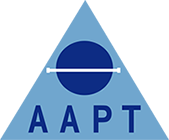News
Centre for Death & Society (CDAS) webinars
Gemma Norburn MAAPT reports on a fascinating webinar event run by the CDAS

On the evening of Thursday 16th April, I was very pleased to be able to attend a talk hosted by Dr. John Troyer of the Centre for Death & Society (CDAS) at Bath University.
CDAS have a set of talks lined up for the coming weeks which are In Conversation events with people who are pivotal in different areas of death, dying and bereavement.
The talk I attended was the first in these events and was with Professor Lucy Easthope who is someone that I have admired since I stumbled across her Twitter profile. Professor Easthope has worked on pandemic and emergency planning for a number of years, is an expert in disaster recovery and is an advisor to the government in these areas. I have seen in person and online talks by Dr. Troyer previously, and one thing that really struck me about this talk was the jovial friendship between him and Professor Easthope which shone through and made this a very approachable discussion on a rather serious topic.
Dr. Troyer began by asking Professor Easthope how she had reflected on the last year, on the pandemic response and the planning that was put into action. Initially, Lucy commented that it was hard to reflect on something while still experiencing it, but a pandemic of this nature was something that she had always considered a ‘when’ not an ‘if’ and had been convinced she would experience it in her lifetime.
She commented that from a personal level she thought it had changed her hugely, both during when she felt like she had a “World War Z” phase and now as she tries to improve her and her family’s life ongoing.
From a planning perspective, Professor Easthope made comments about the fact there were some issues with the existing plans being used, and in some ways not even being referred to. She felt frustrated in this sense, Dr. Troyer agreeing with her, that it felt a lot like the response was as though no planning existed. In relation to these comments, Professor Easthope took the time to really thank and give credit to those working in the deathcare industry during the pandemic.
She stated that there would have been a much greater issue with the number of deceased should the APTs, funeral directors and other death industry professionals not worked together so well to prevent these problems but the plans that were laid out by those in charge “did not deserve that kind of goodness” from those involved. She further embellished on this by stating that those in certain areas of government “do not know the debt of gratitude” they have for the death industry who worked so tirelessly throughout the pandemic.
I also really liked that the reporting that Clive Myrie undertook for the BBC at the Royal London hospital was mentioned, with huge credit being given to Myrie for producing a video which really demonstrated the situation that was being faced by those at the hospital, in particular the APTs, and that it did not erode their professionalism while capturing the scale of the tipping point of understanding of these roles.
After this was mentioned, the Corona Act was discussed, and it’s use in speeding up the after death process to help avoid capacity issues. One thing I found interesting from this part of the discussion was the note on the blanket removal of rites and rituals from the death process and the impact this could have. It was easy to forget in the throws of the peaks of the pandemic that these were being put aside for what felt like the greater good, but that this would have a lasting effect on how people would grieve for their loved ones.
Towards the end of the seminar, Dr. Troyer asked Professor Easthope what had gone well in her mind to which she responded that there was actually a very long list of things she thought had been successful. Points I would like to mention include the use of online seminars, such as this one, which kept people feeling connected to the outside world.
She commented that local government groups and the Coroners had worked well, as well as mentioning the death industry and APTs again. She also noted that she thought a range of “new rituals” had sprung out of the pandemic which would be interesting to see going forward, that people adapted to what they were able to do in the face of being told what they could not do.
The final point I would like to comment on from what was discussed was the impact of the overreaction that was seen in the infectious nature of the deceased who were positive for COVID-19 and how this could have been prevented, particularly if the parallels between this and the AIDS epidemic reactions were seen sooner. The early reactions which included actions like using three body bags for individuals could and should have been avoided. After this, there were several questions that were answered, including mentions and points from APTs Lara-Rose Iredale and John Pitchers.
If you would like to attend, there was mention that the plan was to conduct another session like this in around six months’ time, when more could be said and reflected upon. Professor Easthope finished the hour long talk by stating that she was very excited to see what would unfold in terms of the pandemic and disaster planning post-COVID-19.
Professor Lucy Easthope has a book coming out in Spring 2022 titled When the Dust Settles and can be found on twitter with the handle @LucyGoBag.
Dr. John Troyer recently published his book titled Technologies of the Human Corpse and can be found on Twitter at the Death Reference Desk @DeathRef. The Centre for Death and Society (CDAS) can be found also on Twitter @cendeathsociety.
